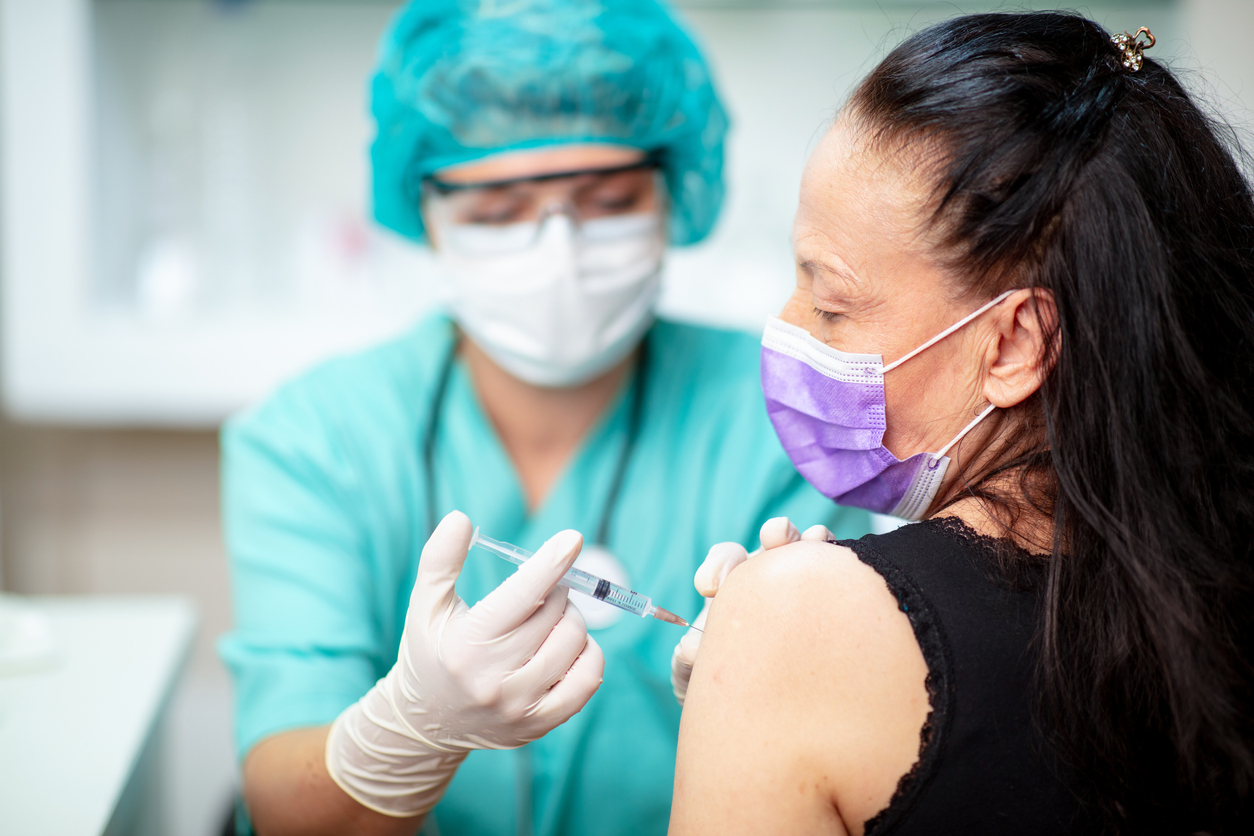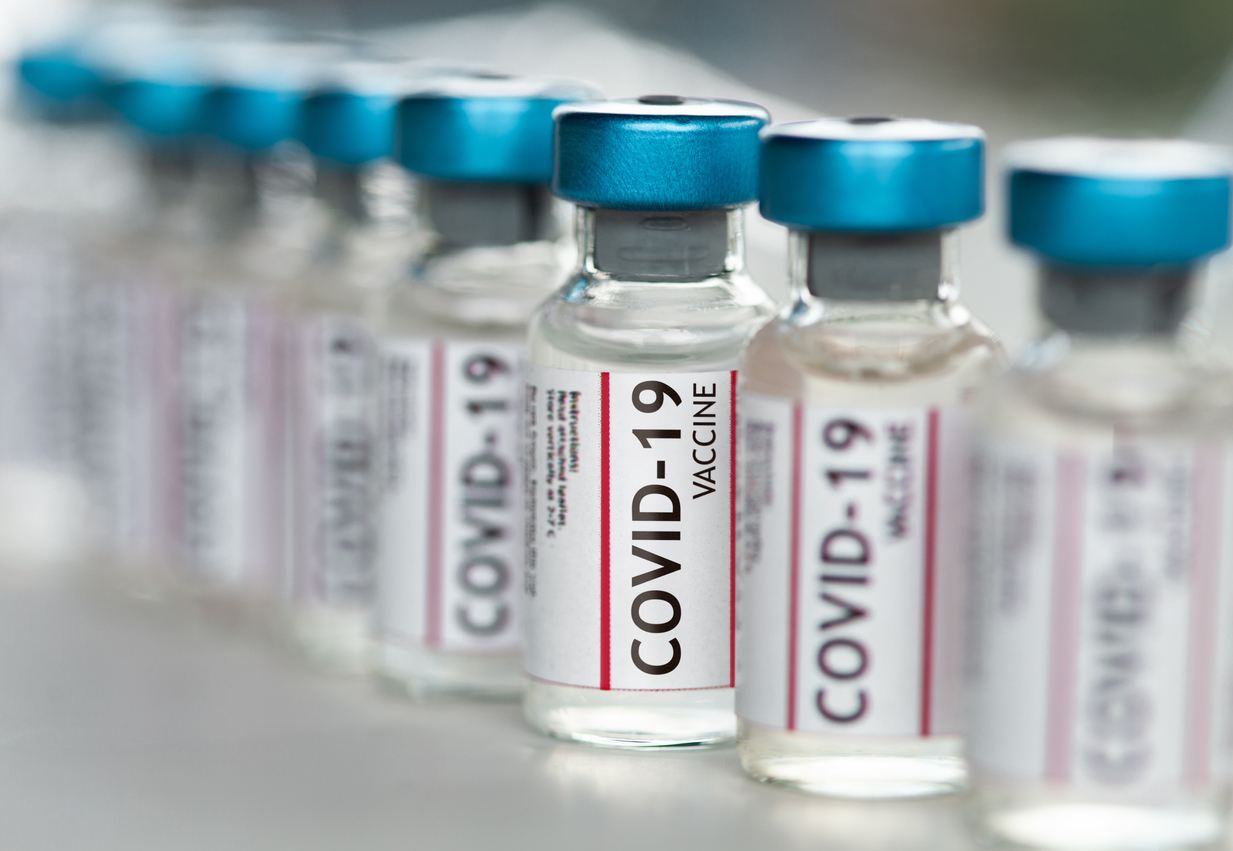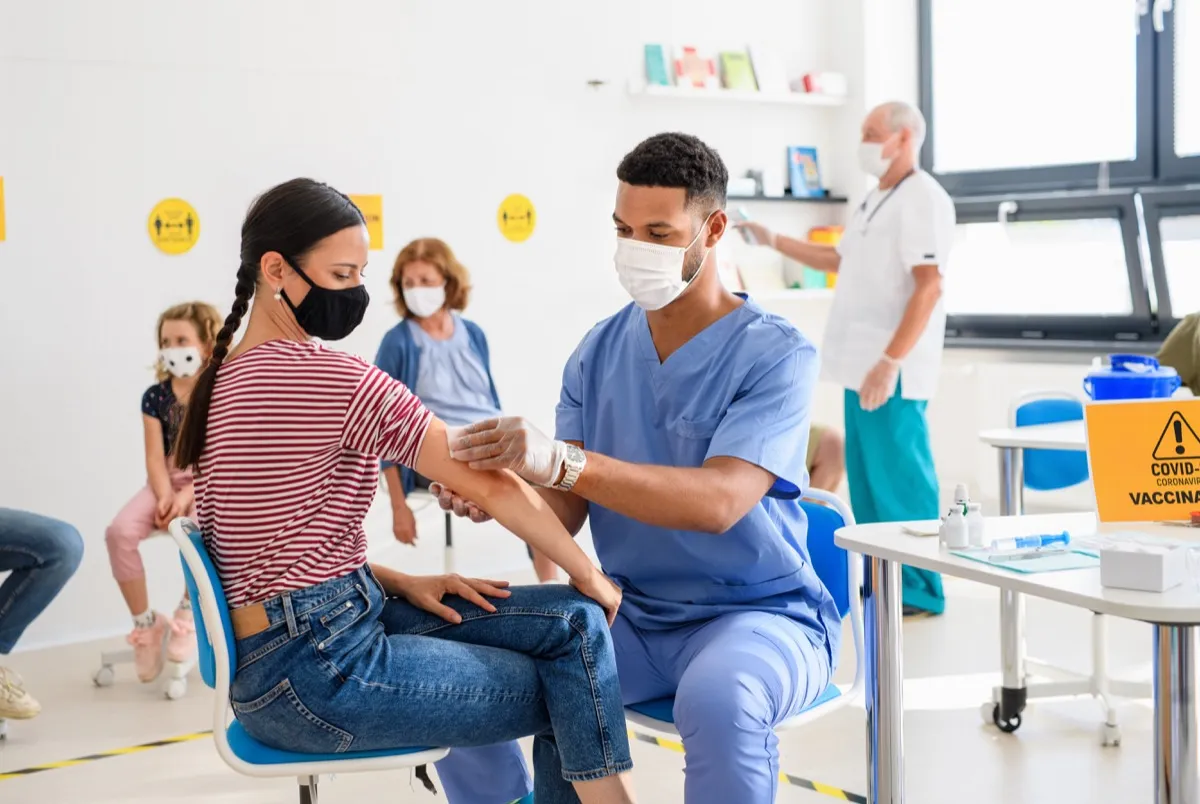During an appearance on RFD-TV’s program Rural Health Matters on Jan. 11, Fauci was asked about the complicated process of figuring out who is eligible to receive their inoculations based on the guidelines put forth by the U.S. Centers for Disease Control and Prevention (CDC). He explained that while it is certainly important to protect the high-risk populations of healthcare workers and nursing home residents, it is still prudent to consider others. “We haven’t abandoned that [first] group, but we’re moving along to a much less stringent definition of who gets vaccinated,” he said. Read on to see what else Fauci and other top health officials had to say about the coming weeks, and for more surprising news about the vaccine, check out The CDC Just Gave a Shocking COVID Vaccine Update. Read the original article on Best Life. Fauci admitted that the vaccine rollout process had experienced its fair share of growing pains. But after being asked whether supply chain issues were to blame for any of the issues we’ve seen thus far, the National Institute of Allergy and Infectious Diseases (NIAID) director explained that the timing of the initial rollout was also partly to blame.ae0fcc31ae342fd3a1346ebb1f342fcb “I think we’re going to see a substantial improvement in the rolling out of the doses and getting them into people’s arms. Any major operation that is of the magnitude of trying to vaccinate the entire country is going to have some bumps in the road, particularly because it was initiated in the holiday season,” he explained. “The restriction of trying to get the priority groups vaccinated has been too stringent, and you have to open them up. We don’t want the perfect to be the enemy of the good.” And for another vaccine update to know about, beware that If Your COVID Vaccine Site Doesn’t Have This, You Need to Go Elsewhere. Fauci is far from the only health expert who thinks administering the vaccine could be sped up by focusing on how many doses can go out instead of harshly policing who gets them. During an interview with CNBC’s Squawk Box on Jan. 11, Scott Gottlieb, MD, former U.S. Food and Drug Administration (FDA) commissioner, argued that the goal of getting as many people protected as possible should be a top priority. “The more rules, the more penalties we put in place, then fewer vaccines are going to be delivered. I think that’s just the bottom line,” Gottlieb explained. “If we want to make sure that there’s absolutely no one who purportedly jumps the line, we’re going to have a system that really crawls. I think we need to get over that and recognize that every vaccine that we can get into someone right now, given the urgency and this new variant, is a public health win in some regards.” And speaking of the new variant, check out Dr. Fauci Just Issued This Stern Warning About the U.K. COVID Strain. In recent interviews, other top health officials have spoken up about loosening recommended guidelines to speed the vaccination process along. U.S. Surgeon General Jerome Adams, MD, and FDA Commissioner Stephen Hahn, MD, have both recently echoed written guidelines released by the CDC specifically encouraging flexibility to “ensure expeditious transition from one phase of COVID-19 vaccine allocation to the next.” The CDC clarifies that “it is not necessary to vaccinate all individuals in one phase before initiating the next phase; phases may overlap.” During a phone call with reporters on Jan. 8, Hahn stated that many states had far from exhausted the doses they had been shipped, Barrons reports. “A number of the states have about 30 to 35 percent utilization of the existing vaccine supplies,” Hahn said. “So we’re encouraging those states to broaden the criteria for administration.” And for more regular coronavirus updates, sign up for our daily newsletter. Despite the initially sluggish beginnings to rolling out the vaccine, some experts argued that the current pace will be short lived once larger groups of people become eligible to get vaccinated. Some even expressed confidence that a much larger swath of the population would likely be able to get inoculated before the end of the winter. “We’re living in this sort of belief that the demand here is endless, and it’s not,” Gottlieb told CNBC. “I think by the end of February, we’re going to find that we have to open up eligibility pretty wide to get people to come in to get inoculated. We’re not going to be in this rationing situation. I think it’s going to end sooner than we think.” And for more on what you should be prepared for, check out Dr. Fauci Just Gave This Warning About COVID Vaccine Side Effects.



